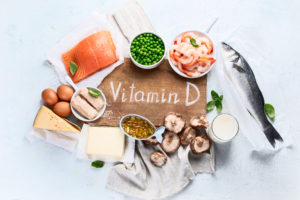
But can getting outside a little more or popping some supplements really save your life? Not so fast.
Although researchers from the United Kingdom have found that vitamin D deficiencies may play a role in a person’s chance of survival against COVID-19, it certainly does not prove that vitamin D is a magic bullet.
Of course, vitamin D plays a vital role in overall health. When you’re getting enough of it, you may be less susceptible to illness. It plays a key role in inflammation and immune function, but the idea that it can save you from COVID-19 might be a little extreme.
And the researchers want to make sure people know that. But the finding does open the door for some new research and potential treatment methods.
Looking at 20 European countries, they found one major discrepancy between death and survival from COVID-19: vitamin D levels.
They suggest that in Italy and Spain, Europe’s two of Europe’s hardest-hit countries, residents have below-average vitamin D in their blood. Lifestyle and skin pigmentation, explain the authors, are likely behind the low levels.
At the other end of the spectrum, Northern countries, particularly the Scandinavian ones, have the highest levels of vitamin D intake and fewer cases of severe COVID-19. They believe this is likely due to supplementation, cod liver oil intake, and more outdoor time.
Previous research has also shown vitamin D can help battle acute respiratory infections by controlling the immune response. It’s possible that too little vitamin D inhibits these controls and promotes dangerously high levels of inflammation that may boost illness susceptibility and severity.
So, if you do get COVID-19, your body might not be adequately prepared to fight it off.
Can taking vitamin D help you avoid getting a severe case of COVID-19? It might be possible, but these findings need to be taken in context. Of course, getting enough vitamin D helps your body function better. Every nutrient plays a role in optimizing health.
Getting enough vitamin D via sunlight and supplementation, as well as eating a nutrient-dense diet, can help optimize your immune system during the pandemic. But it does not provide any guarantees either.